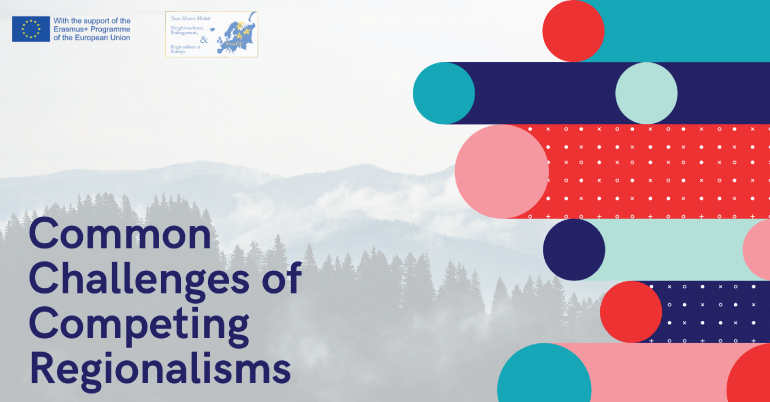Are you interested to widen your knowledge about comparative regionalism and integration processes in Europe and Eurasia? Would you like to know more about the dimensions of comparative regionalism in the European and Eurasian context in the light of emergence, transformation, and consolidation of integration processes in the EU and in the former Soviet space? Join the brand-new e-course “Common Challenges of Competing Regionalisms” launched by the Johan Skytte Institute of Political Studies (University of Tartu) and meet lecturers in the virtual classroom! The MOOC is worth 2 ECTS and runs from 18.10.2021 to 28.11.2021.
Looking for fully-funded opportunities, install the Youth Opportunities Android or iOS App here.
During the course you are going to learn about:
- The multifaceted nature of regionalism in different geo-territorial and geopolitical contexts in Europe and Eurasia
- Conceptual and theoretical definition of regionalism by looking at the relevant cleavages in contemporary societies
- Post-WWII regionalism in Europe
- Eurasian integration as a spin-off of the EU
- Deviation from the supranational model and longitudinal comparisons with the EU
- Case studies and policy issues
- Comparative regionalism: between integration and hegemony
NB! The course takes place fully online (on the learning management system of the University of Tartu – Moodle). The lectures are pre-recorded.
Location:
OnlineBenefits
By enrolling in the course, you will have access to:
- Short videos on basic definitions and concepts (between 10-15 minutes per each), aimed at providing a general overview of key concepts related to comparative regionalism, actors, and factors related to integration processes in Europe and Eurasia;
- Video lectures with interventions from academic experts intended to provide a more in-depth and critical overview of the integration process and comparative dimension between EU and EEU in terms of regional integration. The video lectures are between 20-30 minutes in length;
- Short video interviews aimed at providing specific perspectives on different case studies in the context of competing for regional integration projects. The interviews will include academic representatives from the region;
- Readings, course supporting and interactive materials (course syllabus, tips for studying online and completing the course successfully, video clip on navigating through Moodle for external participants) as well as a communication platform in the form of Moodle forum;
- Short multiple-choice quizzes aimed at testing basic knowledge and understanding of learning material;
- Brief written assignments emphasizing the comparison between the EU and EEU and allowing the participants to apply their knowledge and reflect on the future trends of regionalism;
- Contribution to forum discussion (comment in regard to the case study);
- Vibrant and international online community of peers with whom you can learn together and interact throughout the course.
Eligibilities
- Basic knowledge of comparative regionalism and integration processes in Europe and Eurasia are suggested.
- However, the course will provide useful background material to any participant, who is interested in comparative regionalism and international affairs in general.
Application Process
- Apply online through the Apply Now link.
- Registration closes on October 14th, 2021 (23:59 PM, Eastern European Time).
Looking for fully-funded opportunities, install the Youth Opportunities Android or iOS App here.
Application Deadline: October 14, 2021
Application ClosedOfficial link









